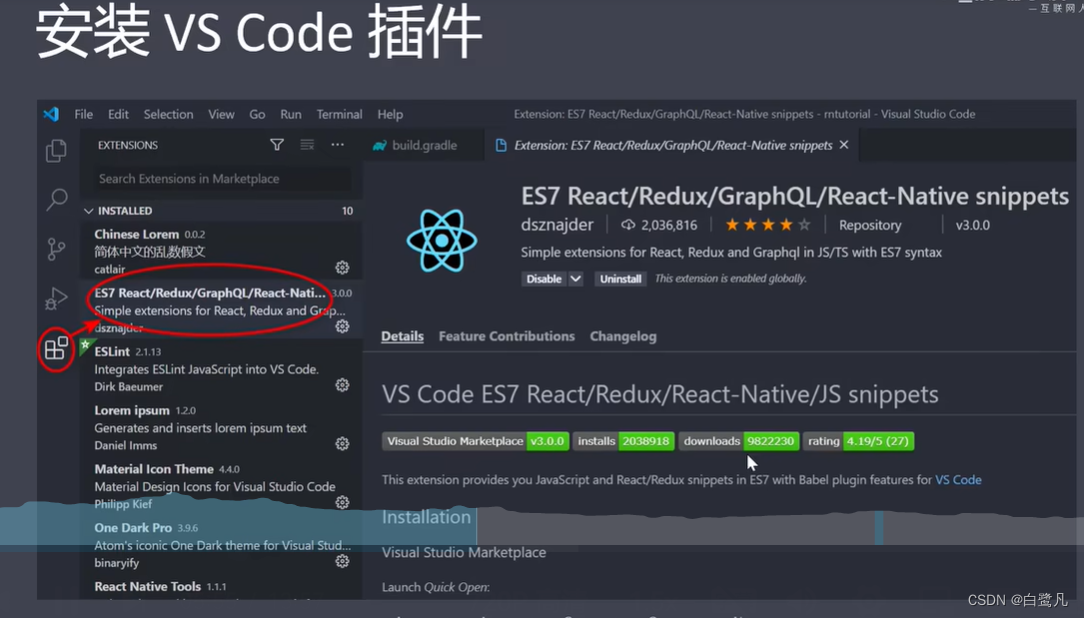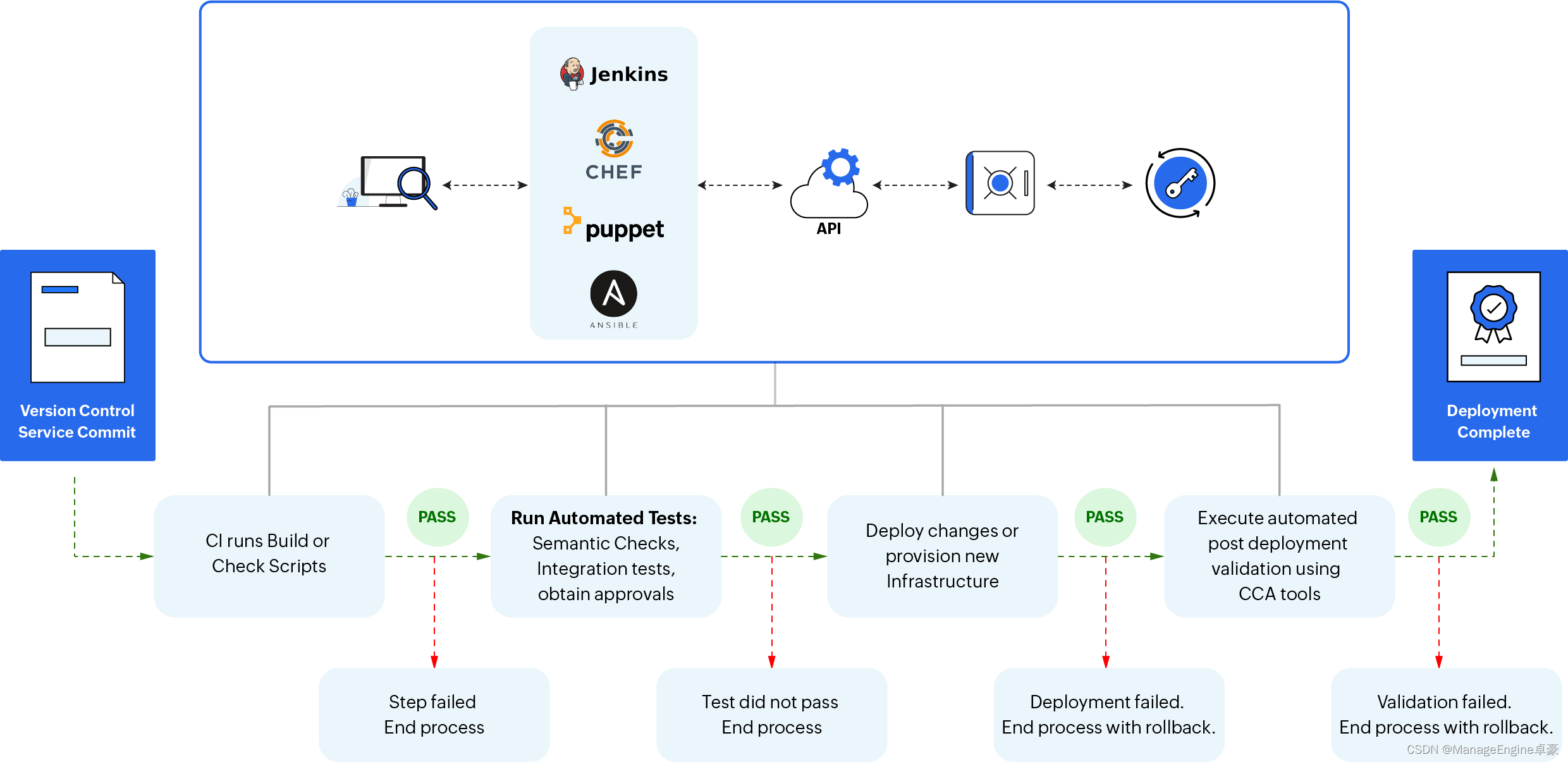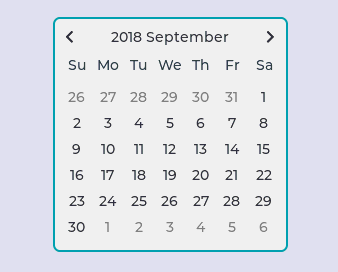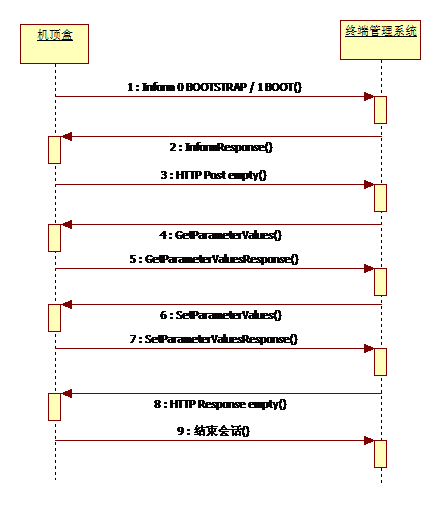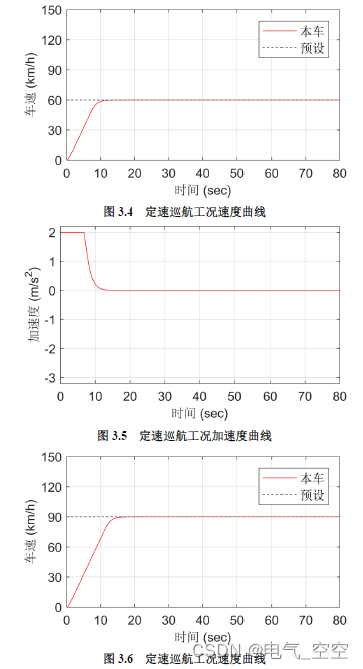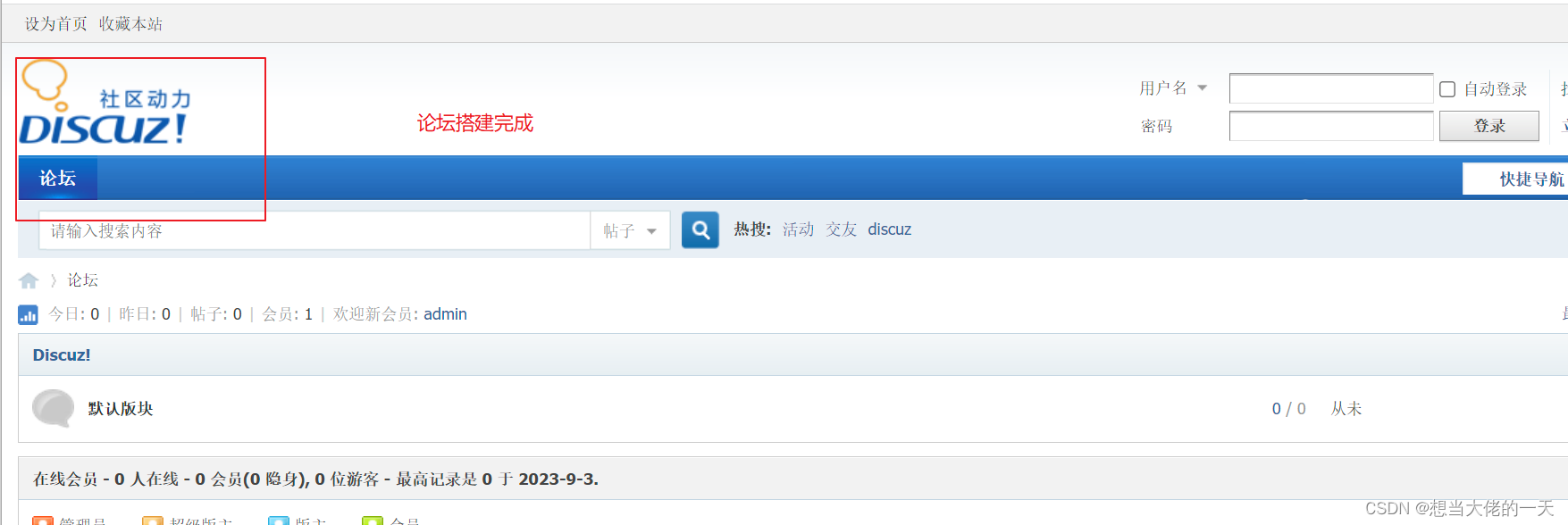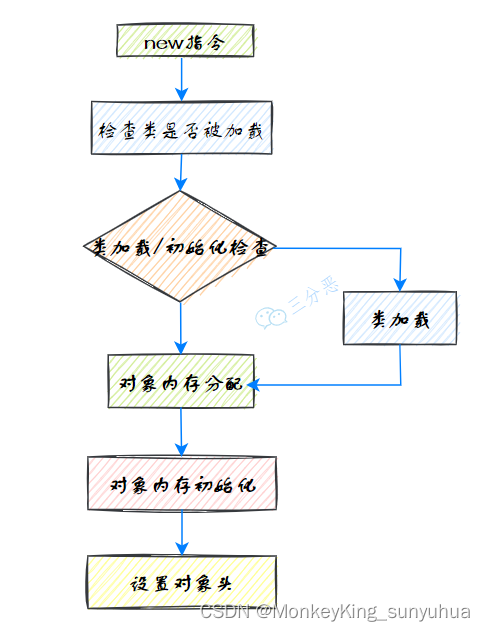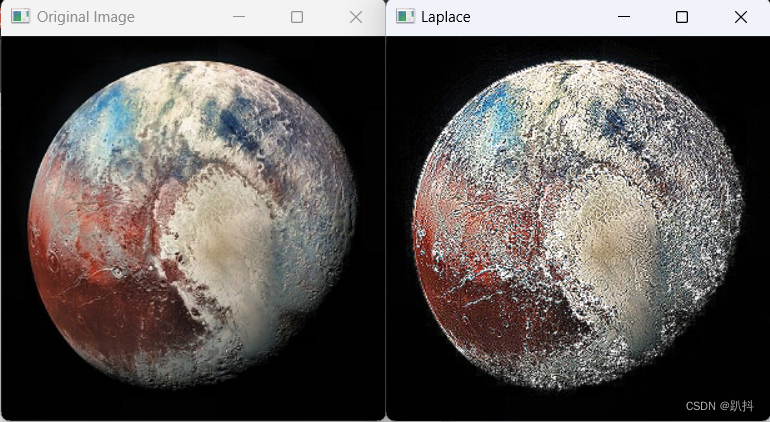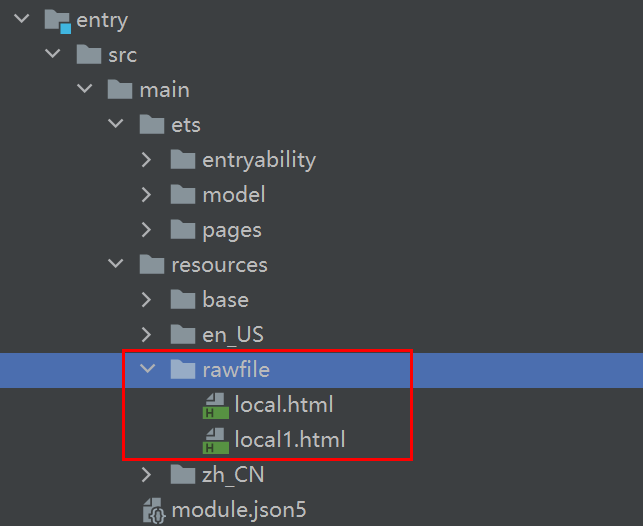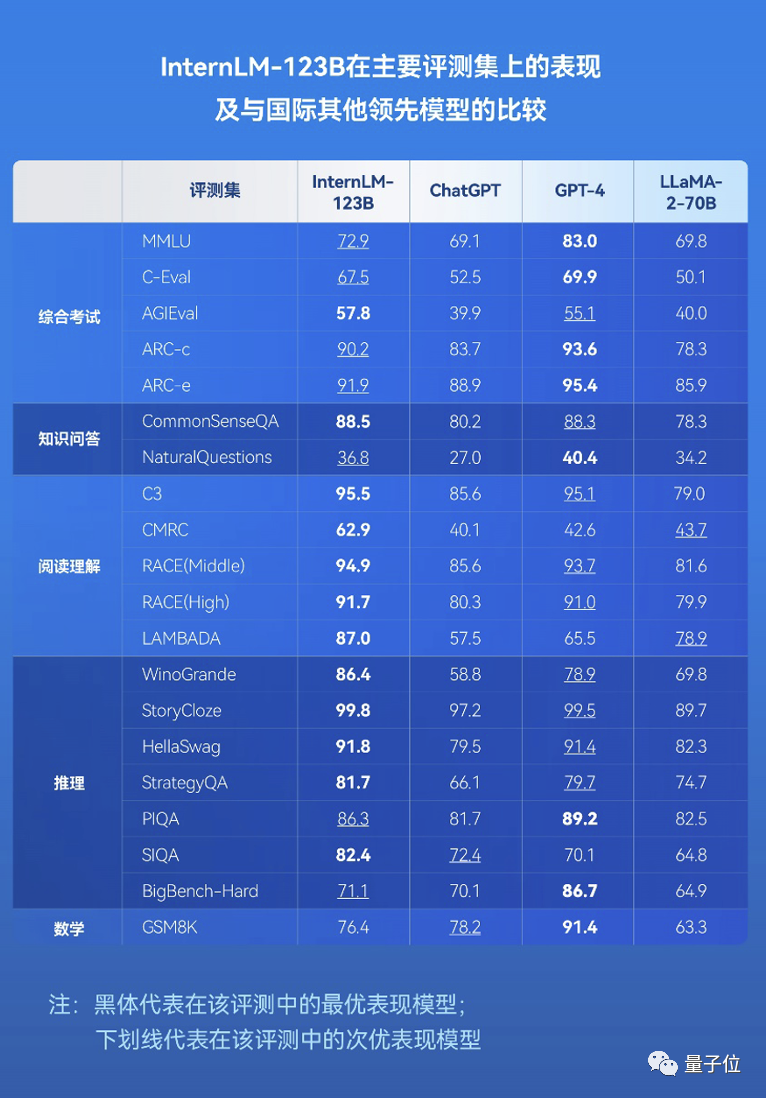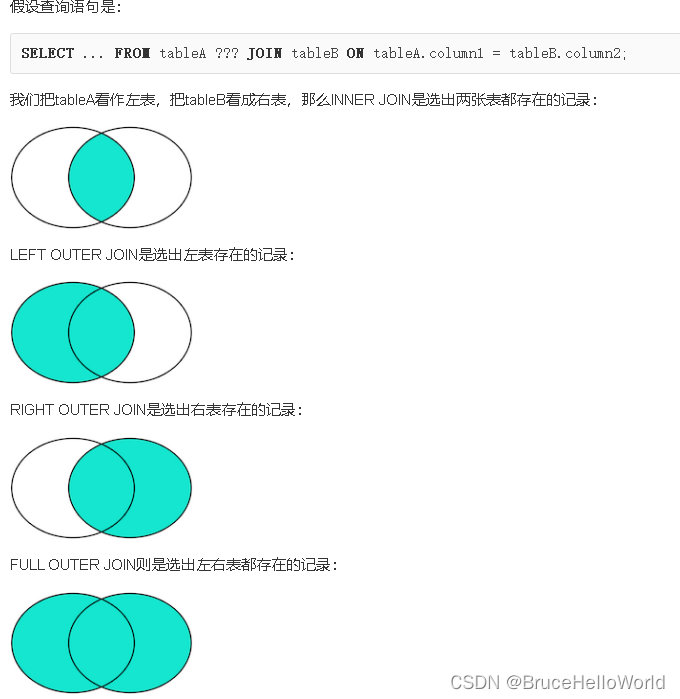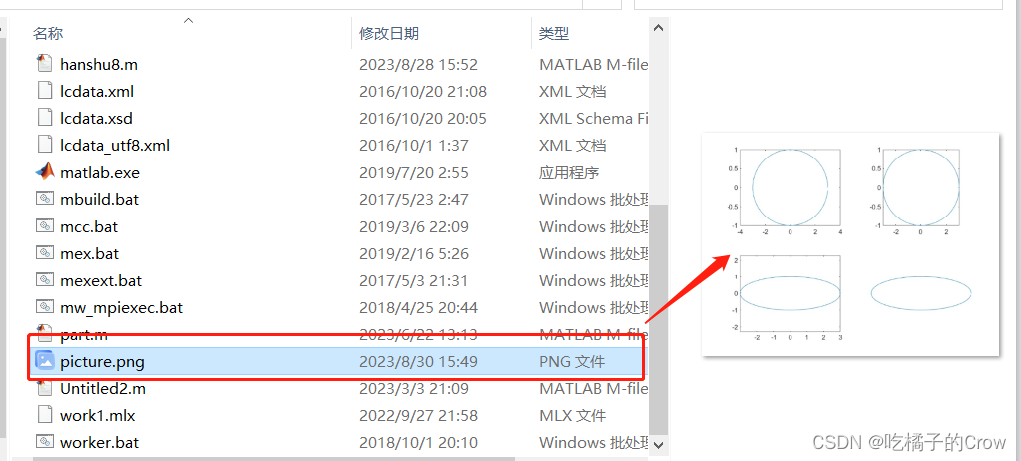本地化的概念
本地化的目的是支持不同国家、地区的语言特性、规则。比如拥有本地化支持后,可以使用支持汉语、法语、日语等等的字符集。除了字符集以外,还有字符排序规则和其他语言相关规则的支持,例如我们知道(‘a’,‘b’)该如何排序,那么(‘a’,‘A’)和(‘啊’,‘阿’)又该如何排序?
如果通过google去搜本地化、字符集、collation相关信息,可能会得到一些复杂又遥远的知识。最好的老师还是
本地化知识点总共分为3个部分:locale本地化支持、collation校验、字符集。
locale
pg的本地化由由操作系统提供,需要检查操作系统是否支持locale -a。在初始化数据库时可指定locale
initdb --locale=en_US
也可以单独设置本地化子类:字符串排序、字符归类方法、数值格式、日期格式、时间格式、货币格式等
initdb --locale=zh_CN --lc-monetary=en_US
所有本地化子类:
| 本地化子类 | 规则 |
|---|---|
| LC_COLLATE | String sort order |
| LC_CTYPE | Character classification (What is a letter? Its upper-case equivalent?) |
| LC_MESSAGES | Language of messages |
| LC_MONETARY | Formatting of currency amounts |
| LC_NUMERIC | Formatting of numbers |
| LC_TIME | Formatting of dates and times |
这些子类又可以分为两部分,其中lc_messages,lc_monetary,lc_numeric,lc_time在初始化后,可以通过参数进行调整。LC_COLLATE,LC_CTYPE属于collation,详见collation的调整。
locale设置会影响如下行为:
- Sort order in queries using
ORDER BYor the standard comparison operators on textual data - The
upper,lower, andinitcapfunctions - Pattern matching operators (
LIKE,SIMILAR TO, and POSIX-style regular expressions); locales affect both case insensitive matching and the classification of characters by character-class regular expressions - The
to_charfamily of functions - The ability to use indexes with
LIKEclauses
COLLATION
collation是字符排序的顺序和字符分类行为。一些数据库操作符依赖collation,比如order by、lower, upper、initcap 、to_char等等。
使用如下SQL查询系统表pg_collation,来获取字符集支持的LC_COLLATE和LC_CTYPE信息
select pg_encoding_to_char(collencoding) as encoding,collname,collcollate,collctype from pg_collation where collname in ('default','C','POSIX','en_US.utf8','zh_CN.utf8','zh_CN.gb2312','zh_SG.gb2312') ;encoding | collname | collcollate | collctype
----------+--------------+--------------+--------------| default | | | C | C | C| POSIX | POSIX | POSIXUTF8 | en_US.utf8 | en_US.utf8 | en_US.utf8EUC_CN | zh_CN.gb2312 | zh_CN.gb2312 | zh_CN.gb2312UTF8 | zh_CN.utf8 | zh_CN.utf8 | zh_CN.utf8EUC_CN | zh_SG.gb2312 | zh_SG.gb2312 | zh_SG.gb2312
encoding是字符集,collname为collation的名字
- encoding 为空时,表示这个 collation 支持所有的字符集
default,C,POSIX是所有平台都支持的collation,由libc提供,其他collation取决于操作系统是否支持(locale -a)- default表示使用建库时的collation,可通过\l查看
C语义上等价于POSIX,但是PG仍然认为他们是不同的collation。他们的字符都以ASCII码对比,严格按照字节序比对大小。
=> SELECT 'a' COLLATE "C" < 'b' COLLATE "POSIX" ;
ERROR: 42P21: collation mismatch between explicit collations "C" and "POSIX"
LINE 1: SELECT 'a' COLLATE "C" < 'b' COLLATE "POSIX" ;
LOCATION: merge_collation_state, parse_collate.c:834
- UTF8是最常见的字符集,我们最常见的语言环境是en_US和zh_CN
- 可以通过
CREATE COLLATION ...创建自定义的collation。不过LC_COLLATE和LC_CTYPE不同的情况非常少见
LC_COLLATE
LC_COLLATE影响字符比对(排序、字符操作等等)
collate子句可以转化表达式的collation:
expr COLLATE collation
注意这里指定的是collation,不是lc_collate。如果没有显示指定collation,数据库默认使用字段的collation,如果字段没有指定collation,使用database的默认collation。
不同的collation排序测试:
select col1 from (values ('a'), ('A'), ('啊'), ('阿'))
-> AS l(col1)
-> order by col1 collate "C";col1
------Aa啊阿select col1 from (values ('a'), ('A'), ('啊'), ('阿'))
-> AS l(col1)
-> order by col1 collate "en_US.utf8";col1
------aA啊阿select col1 from (values ('a'), ('A'), ('啊'), ('阿'))
-> AS l(col1)
-> order by col1 collate "zh_CN.utf8";col1
------aA阿啊
这3个不同的collation有不同的lc_collate,排序方法应该是不一样的,从结果来看确实是不一样的,出现了3种排序结果。
collation C为什么A<a?
collation C使用的ASCII的编码顺序,ASCII码中大写在小写前面。而en_US.utf8和zh_CN.utf8的英文字母明显不是这个顺序
中文的顺序
同样是utf8字符集,中文环境和英文环境的中文顺序不一样。不同的lc_collate对于不同本地化语言,应该都可以对应到不同的alphabets。其中,lc_collate=C的排序一定是按字节序排的,虽然ASCII没有中文,但是C也可以排序中文,(基本)每个中文都可以对应UTF8的一个编码,而C以其字节序排序。
LC_CTYPE
LC_CTYPE影响字符操作(如upper、initcap等)
如果字符串都是英文,比如是’abcD’,initcap在3种collation下都会转换为’Abcd’,这里不多展示了。
但是加入中文,结果就不一样了:
select initcap('啊aAAa阿bBBb' collate "C");initcap
--------------啊Aaaa阿Bbbbselect initcap('啊aAAa阿aAAa' collate "en_US.utf8");initcap
--------------啊aaaa阿aaaaselect initcap('啊aAAa阿aAAa' collate "zh_CN.utf8");initcap
--------------啊aaaa阿aaaa
LC_CTYPE=C时,initcap把每个非连续英文字符串的首字母大写,而en_US.utf8和zh_CN.utf8只会将首个字符大写(中文就不会变),其他英文字符小写。
initcap中文也许处于需求不明的状况,但是我们可以得出结论:不同的LC_CTYPE会导致initcap等字符敏感函数结果不一样。
另外,中文对于大小写不敏感,一些其他本地化语言同样有大小写,不同的LC_CTYPE导致的结果会更复杂。
字符集
字符集基础
PostgreSQL支持不同的字符集character sets(也叫encodings)。字符集于collation是两个概念,但是字符集必须跟LC_CTYPE,LC_COLLATE兼容。就像在pg_collation中看到的那样,C/POSIX支持所有字符集,而其他collation只支持一种字符集(linux系统中)。
PostgreSQL中文相关可用的字符集:
(*collation C由libc库提供,部分collation可以由ICU库提供,需提前编译)
| Name | Description | Language | Server端是否支持? | ICU是否支持? | Bytes/Char | Aliases |
|---|---|---|---|---|---|---|
| BIG5 | Big Five | 繁体中文 | No | No | 1–2 | WIN950, Windows950 |
| EUC_CN | Extended UNIX Code-CN | 简体中文 | Yes | Yes | 1–3 | GB2312 |
| GB18030 | National Standard | 中文 | No | No | 1–4 | |
| GBK | Extended National Standard | 简体中文 | No | No | 1–2 | WIN936, Windows936 |
| UTF8 | Unicode, 8-bit | all | Yes | Yes | 1–4 | Unicode |
繁体中文:
BIG5是最常见的繁体中文字符集标准。之前是业界标准,后来被录入为国家标准。
简体中文:
GB是国标的意思,GB2312、GB18030、GBK都是我国的国家字符集标准。由于生僻字等问题,并经过多年发展产生了一些历史版本,所以标准看上去有多个。
其中EUC_CN全称为 Extended UNIX Code-CN ,其实就是GB2312,但它也不能处理所有罕见字。类似命名的还有EUC_KR,EUC_JP,EUC_TW等等。
国际标准:
上面的字符集都是国家标准,他们除了支持英、中外不支持其他语言。而国际标准支持世界上所有语言,这就是unicode国际编码标准(甚至emoji也包含其中 👍)。(还有个著名的国际标准组织ISO也在维护字符集,他俩有交集,这里先忽略ISO)。
由于Unicode编码方案的不同又有UTF-8、UTF-16、UTF-32三种编码方式。
UTF-8编码格式:
| 字节 | 格式 | 实际编码位 | 码点范围 |
|---|---|---|---|
| 1字节 | 0xxxxxxx | 7 | 0 ~ 127 |
| 2字节 | 110xxxxx 10xxxxxx | 11 | 128 ~ 2047 |
| 3字节 | 1110xxxx 10xxxxxx 10xxxxxx | 16 | 2048 ~ 65535 |
| 4字节 | 11110xxx 10xxxxxx 10xxxxxx 10xxxxxx | 21 | 65536 ~ 2097151 |
UTF8编码是变长的。
0x00-0x7F之间的字符(1字节),UTF-8编码与ASCII(American Standard Code for Information Interchange 美国标准信息交换代码)编码完全相同,所以UTF-8是完全兼容ASCII的。
由于同源、同义、相似性,在unicode中中日韩越使用了同一编码,称为中日韩统一表意文字(或称中日韩越统一表意文字)。
中日韩统一表意文字编码范围为:3400-4DBF/4E00-9FFF/20000-3FFFF
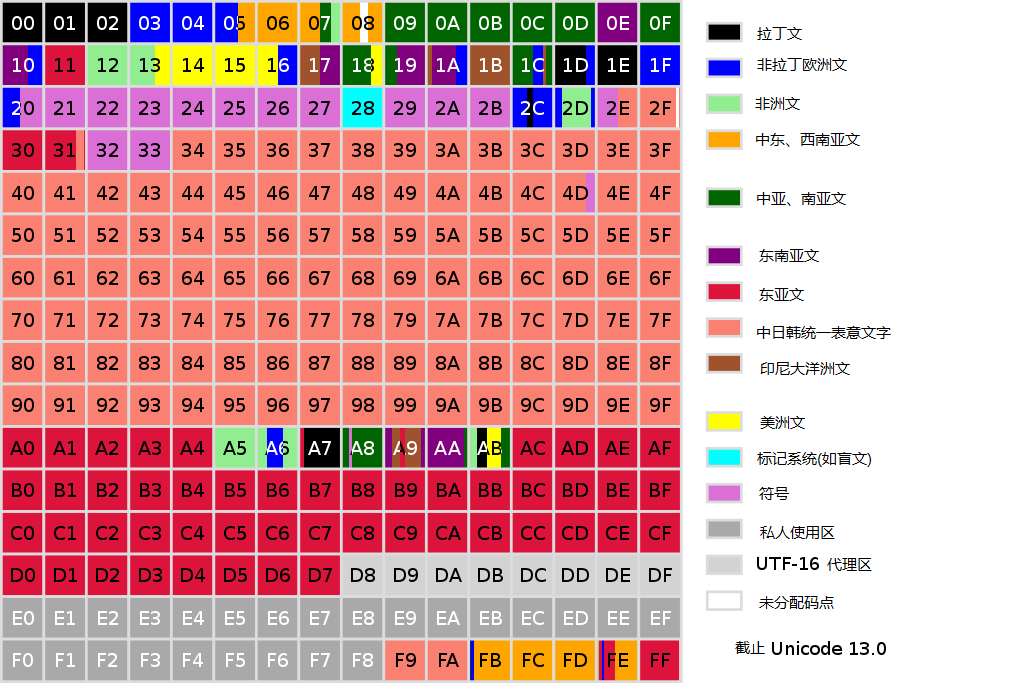
字符集转换
server_encoding与client_encoding不一致,可发生自动转换Server查出来的字符集。设置服务端字和客户端字符集参考设置字符集一节。
中文相关字符集Server/Client可转化表:
| Server Character Set | Available Client Character Sets |
|---|---|
| BIG5 | not supported as a server encoding |
| EUC_CN(GB2312) | EUC_CN(GB2312), MULE_INTERNAL, UTF8 |
| GB18030 | not supported as a server encoding |
| GBK | not supported as a server encoding |
| UTF8 | all supported encodings |
| GB18030,GBK服务端都不支持,所以其实只有EUC_CN(GB2312)、UTF8能在Server/Client转换。 |
以上是可以转换的字符集,仍需要CONVERSATION的支持。PG内置了一些转换函数,可通过pg_conversion查看:
| Conversion Name | Source Encoding | Destination Encoding |
|---|---|---|
| big5_to_utf8 | BIG5 | UTF8 |
| euc_cn_to_utf8 | EUC_CN | UTF8 |
| gb18030_to_utf8 | GB18030 | UTF8 |
| gbk_to_utf8 | GBK | UTF8 |
| utf8_to_big5 | UTF8 | BIG5 |
| utf8_to_euc_cn | UTF8 | EUC_CN |
| utf8_to_gb18030 | UTF8 | GB18030 |
| utf8_to_gbk | UTF8 | GBK |
可通过create conversation语句创建自定义的转换,需指定转换的function。
有些字符集间看上去可以转换,但是server端根本不支持存储这些字符集(如big5、gb18030、gbk),所以也没啥用。我们这里仅需要知道euc_cn和utf8能相互转换就可以了。
没有CONVERSATION是不能发生转换的:
--EUC_CN的database
=> \encoding EUC_KR
EUC_KR: invalid encoding name or conversion procedure not found
字符集转换测试:
需要注意客户端的字符集设置(如CRT的 “session”-“Appearance”-“Character encoding”)
至少有3个端有字符集的概念:数据库server、数据库client、UI客户端。CONVERSATION也只能控制:数据库server -> 数据库client
1.server为UTF8的转换测试:
create table zh(col1 varchar(20));
insert into zh values('>'),('阿'),('〇'); --〇 ling是一个中文
--CRT不设置为UTF8中文全是乱码,只有CRT设置UTF8来插入=> show server_encoding;server_encoding
-----------------UTF8
=> show client_encoding;client_encoding
-----------------UTF8
--完全没有转换的情况下,UTF8正常展示。此时3端字符集为:UTF8 - UTF8 - UTF8
=> select * from zh;col1
------>阿〇--切换数据库client字符集,此时3端字符集为:UTF8 - EUC_CN - UTF8
=> \encoding EUC_CN; --设置客户端字符集=> select * from zh where col1 in ('阿');
ERROR: 22021: invalid byte sequence for encoding "EUC_CN": 0xe9 0x98
LOCATION: report_invalid_encoding, mbutils.c:1597
Time: 0.112 ms
=> select * from zh where col1 in ('〇');
ERROR: 22021: invalid byte sequence for encoding "EUC_CN": 0xe3 0x80
ERROR: 22021: invalid byte sequence for encoding "EUC_CN": 0xe3 0x80
--“阿”和“〇”看上去不能转换为EUC_CN,但不是这样的=> select * from zh limit 2;col1
------><B0><A2>
(2 rows)
--第二行即是"阿",数据库server/client看上去转换了字符集,从UTF8转换为了EUC_CN
--但是可能是因为UI客户端问题没有正确显示(此时UI客户端CRT为UTF8)--然而把CRT改成GB2312还是不会正确展示
select * from zh limit 2;col1
------><B0><A2>
(2 rows)--当查询〇时,数据库直接抛出报错,说明〇不能从UTF8转换为EUC_CN
select * from zh ;
ERROR: 22P05: character with byte sequence 0xe3 0x80 0x87 in encoding "UTF8" has no equivalent in encoding "EUC_CN"
LOCATION: report_untranslatable_char, mbutils.c:1631
2.server为EUC_CN的转换测试:
=> show server_encoding; --database为EUC_CN字符集
server_encoding
-----------------
EUC_CN--在EUC_CN库下同样创建一个zh表,此时尝试插入就有问题了
=> insert into zh values('〇');
ERROR: 22P05: character with byte sequence 0xe3 0x80 0x87 in encoding "UTF8" has no equivalent in encoding "EUC_CN"
LOCATION: report_untranslatable_char, mbutils.c:1631
同样报错〇不能从UTF8转换为EUC_CN。EUC_CN(GB2312)中文编码不完全与UTF8相同,EUC_CN(GB2312)不是所有中文都包含的,特别是罕见字。
设置locale、collation和字符集
上面已经了解过本地化和字符集设置了,这里做一个汇总
database cluster的locale、collation、字符集
初始化时可设置database cluster的locale和字符集,参考:
initdb -D $DATADIR -E UTF8 --locale=en_US.UTF8
initdb -D $DATADIR -E UTF8 --locale=en_US.UTF8 --lc_collate=C --lc_ctype=C
initdb -D $DATADIR -E UTF8 --locale=en_US.UTF8 --lc_collate=C --lc_ctype=C --lc-messages=en_US.UTF8 --lc-monetary=en_US.UTF8 --lc-numeric=en_US.UTF8 --lc-time=en_US.UTF8
initdb会创建postgres,template1,和template0三个库。create database语句时默认使用template1创建库。
-
encoding设置字符集;locale设置LC_COLLATE,LC_CTYPE,LC_MESSAGES,LC_MONETARY,LC_NUMERIC,LC_TIME,除非特别指定(如–lc_collate)
-
LC_COLLATE,LC_CTYPE称为collation,还可在database、列、索引上设置。LC_MESSAGES,LC_MONETARY,LC_NUMERIC,LC_TIME为实例参数,可随时修改。
-
encoding只能在初始化、创建database时设置,一旦设置不可修改。
database的collation、字符集
创建database时可设置database的字符集、lc_collate、lc_ctype。
create database ,createdb都可以在创建database时指定字符集,一旦创建就不能修改database的字符集。两个命令都是使用template库来创建database
template又有template0和template1,官方文档有这样一句话:
Another common reason for copying
template0instead oftemplate1is that new encoding and locale settings can be specified when copyingtemplate0, whereas a copy oftemplate1must use the same settings it does. This is becausetemplate1might contain encoding-specific or locale-specific data, whiletemplate0is known not to.
template1是可写数据的模板库,可能包含本地化过的数据,而template0不能写数据,所以要创建不同的本地化库应使用template0。
而且要显示使用template0,因为不指定的话默认是template1。所以在创建database时没有指定template1且指定其他字符集会报错:
=> create database db_GB2312 ENCODING 'EUC_CN' LC_COLLATE 'zh_CN.gb2312' LC_CTYPE 'zh_CN.gb2312';
ERROR: 22023: new encoding (EUC_CN) is incompatible with the encoding of the template database (UTF8)
HINT: Use the same encoding as in the template database, or use template0 as template.
另外,不能在创建database时通过指定locale来设置字符集
=> create database db_GB2312 locale 'zh_CN.gb2312' template 'template0';
ERROR: 22023: encoding "UTF8" does not match locale "zh_CN.gb2312"
DETAIL: The chosen LC_CTYPE setting requires encoding "EUC_CN".
LOCATION: check_encoding_locale_matches, dbcommands.c:773
报错表示需要指定LC_CYTPE子选项,把collation相关子选项全部加上仍然报错:
=> create database db_GB2312 LOCALE 'EUC_CN' LC_COLLATE 'zh_CN.gb2312' LC_CTYPE 'zh_CN.gb2312';
ERROR: 42601: conflicting or redundant options
DETAIL: LOCALE cannot be specified together with LC_COLLATE or LC_CTYPE.
LOCALE又不能跟LC_CTYPE等子选项一起使用
然后把locale去掉,通过设置字符集、LC_COLLATE、LC_CTYPE 来设置,可以成功。
创建指定字符集的database的正确姿势:
- create database
create database db_GB2312 ENCODING 'EUC_CN' LC_COLLATE 'zh_CN.gb2312' LC_CTYPE 'zh_CN.gb2312' template 'template0';
- createdb
通过cli命令createdb来创建,createdb封装了create database,他俩是等价的:
createdb -E EUC_CN -T template0 --lc-collate=zh_CN.gb2312 --lc-ctype=zh_CN.gb2312 db_GB2312
查看database字符集:
-
\l -
pg_database
select datname,pg_encoding_to_char(encoding),datcollate,datctype,datlocprovider,daticulocale from pg_database;
- show参数
SERVER_ENCODING,LC_COLLATE,LC_CTYPE三个参数都是不可更改的,分别展示当前database的server端字符集、LC_COLLATE、LC_CTYPE
列的collation
collation只跟字符排序、字符函数相关,跟编码不相关。在没有索引的情况下,修改列的collation相当于只是在调整这个列的default排序输出,有索引的情况下会重建索引。不指定列的collation默认与database一致。
建表时指定collation:(注意有些字段类型是un-collatable的,比如int)
create table t1(col1 varchar(10) collate "en_US.utf8");
alter table t1 alter column col1 type varchar(10) collate "C";
注意:alter table不修改长度是不会重建表的,但是一定会重建索引
查看列的默认collation:
1. \d+ t12. information_schema.columns
select table_catalog,table_schema,table_name,column_name,collation_name from information_schema.columns where table_name='t1';3. pg_attribute
select a.attrelid::regclass,a.attname,a.attcollation,c.collname,c.collcollate,c.collctype from pg_attribute a left join pg_collation c on a.attcollation=c.oid where a.attrelid::regclass='tlzl'::regclass and a.attcollation<>0;
推荐方式3查看。\d+ ,information_schema.columns虽然能看到collname,但是collname不是唯一的。只有方式3可以看到collate,ctype
指定collate和查看pg_attribute的测试:
create table tlzl(col1 varchar(10) ,col2 varchar(10) collate "C",col3 varchar(10) collate "zh_CN",col4 varchar(10) collate "en_US.utf8"
);
--列的collation相当于给列打上默认排序的标记,也看不到具体是哪个collate和ctype
db_utf8_c=> Table "public.tlzl"Column | Type | Collation | Nullable | Default | Storage | Compression | Stats target | Description
--------+-----------------------+------------+----------+---------+----------+-------------+--------------+-------------col1 | character varying(10) | | | | extended | | | col2 | character varying(10) | C | | | extended | | | col3 | character varying(10) | zh_CN | | | extended | | | col4 | character varying(10) | en_US.utf8 | | | extended | | |
--collname和collate,ctype不是一一对应的,上面的col3 zh_CN看不出来collate是哪个
db_utf8_c=> select pg_encoding_to_char(collencoding) as encoding,collname,collcollate,collctype from pg_collation where collname like 'zh_CN%';encoding | collname | collcollate | collctype
----------+--------------+--------------+--------------EUC_CN | zh_CN | zh_CN | zh_CNEUC_CN | zh_CN.gb2312 | zh_CN.gb2312 | zh_CN.gb2312UTF8 | zh_CN.utf8 | zh_CN.utf8 | zh_CN.utf8UTF8 | zh_CN | zh_CN.utf8 | zh_CN.utf8--pg_attribute展示比\d+准确
db_utf8_c=> select a.attrelid::regclass,a.attname,a.attcollation,c.collname,c.collcollate,c.collctype from pg_attribute a left join pg_collation c on a.attcollation=c.oid where a.attrelid::regclass='tlzl'::regclass and a.attcollation<>0;attrelid | attname | attcollation | collname | collcollate | collctype
----------+---------+--------------+------------+-------------+------------tlzl | col1 | 100 | default | | tlzl | col2 | 950 | C | C | Ctlzl | col4 | 12562 | en_US.utf8 | en_US.utf8 | en_US.utf8tlzl | col3 | 13200 | zh_CN | zh_CN.utf8 | zh_CN.utf8
--此时才知道,col3 zh_CN的collate是zh_CN.utf8
修改列的collate重写测试:
--给字段加索引,看看重写情况
db_utf8_c=> create index idxcol4 on tlzl(col4);
CREATE INDEXdb_utf8_c=> select pg_relation_filepath('tlzl') TableRelid, pg_relation_filepath('idxcol4') IndexRelid; tablerelid | indexrelid
------------------+------------------base/40996/41006 | base/40996/41015db_utf8_c=> alter table tlzl alter column col4 type varchar(10) collate "C";
ALTER TABLE
db_utf8_c=> select pg_relation_filepath('tlzl') TableRelid, pg_relation_filepath('idxcol4') IndexRelid; tablerelid | indexrelid
------------------+------------------base/40996/41006 | base/40996/41016
--表没有重写,索引重写了
列的collation只是标记,修改列的collation不会重写表,但是如果其上有索引,那么会重写这个索引(有时候不会见下面一节)。
索引的collation
在创建索引时,如不显示指定索引的collation,那么索引会使用列上声明的collation。
创建索引时显示使用collation:
create index idx_C on tlzl(col3 collate "C");
另外,索引还可以以text_pattern_ops,varchar_pattern_ops,bpchar_pattern_ops来创建,此时的索引不依赖collation的规则,而是一个字符一个字符的对比
The difference from the default operator classes is that the values are compared strictly character by character rather than according to the locale-specific collation rules.
CREATE INDEX test_index ON test_table (col varchar_pattern_ops);
其实这种索引跟collation不是完全无关,索引一定有一个排序规则,这种索引的排序规则看上去跟C一致。参考like不走索引一节
查看索引的collation:
\d+ --\d+会展示指定过collate的索引,如果没有的话使用的是列默认索引
db_utf8_c=> \d+ tlzlTable "public.tlzl"Column | Type | Collation | Nullable | Default | Storage | Compression | Stats target | Description
--------+-----------------------+------------+----------+---------+----------+-------------+--------------+-------------col1 | character varying(10) | | | | extended | | | col2 | character varying(10) | C | | | extended | | | col3 | character varying(10) | zh_CN | | | extended | | | col4 | character varying(10) | en_US.utf8 | | | extended | | |
Indexes:"idx_c" btree (col3 COLLATE "C")"idxcol4" btree (col4)
Access method: heap通过pg_index查看更为清晰:(pg_index的indcollation类型是oidvector的,不能直接转化为oid,查起来麻烦点)
db_utf8_c=> select indcollation,indexrelid::regclass from pg_index where indexrelid::regclass ='idx_C'::regclass;indcollation | indexrelid
--------------+------------950 | idx_cdb_utf8_c=> select oid,pg_encoding_to_char(collencoding) as encoding,collname,collcollate,collctype from pg_collation where oid=950;oid | encoding | collname | collcollate | collctype
-----+----------+----------+-------------+-----------950 | | C | C | C
另外,不能通过alter index改变索引的collation,只能删除重建
测试:指定过索引collate后,修改列的collate是否会重写索引?
db_utf8_c=> select pg_relation_filepath('tlzl') TableRelid, pg_relation_filepath('idxcol4') IndexRelid4,pg_relation_filepath('idx_c') IndexRelidC; tablerelid | indexrelid4 | indexrelidc
------------------+------------------+------------------base/40996/41020 | base/40996/41023 | base/40996/41024
(1 row)db_utf8_c=> alter table tlzl alter column col3 type varchar(10) collate "en_US.utf8";
ALTER TABLE
db_utf8_c=> select pg_relation_filepath('tlzl') TableRelid, pg_relation_filepath('idxcol4') IndexRelid4,pg_relation_filepath('idx_c') IndexRelidC; tablerelid | indexrelid4 | indexrelidc
------------------+------------------+------------------base/40996/41020 | base/40996/41023 | base/40996/41024 --idx_c的relfileid没有变
如果指定过索引的collate,修改其字段默认collate,不会重新索引。
客户端的字符集
客户端设置与database不同的字符集,会发生字符集转换,也可能转换不成功,具体参考字符集转换一节。
服务端的字符集在创建database后无法改变,client的字符集可随时调整。
Client字符集设置方法很多:
- 直接在客户端设置
\encoding UTF8 --仅psql支持
SET CLIENT_ENCODING TO UTF8; --session级修改参数
SET NAMES UTF8; --sql标准
- 设置环境变量PGCLIENTENCODING
- 设置client_encoding服务端配置参数
优先级:客户端设置>环境变量PGCLIENTENCODING>client_encoding服务端配置参数
查看client字符集:
\encoding --仅psql支持
SHOW client_encoding;
表达式collate
表达式加collate会覆盖表达式原本的collation,相当于指定了排序collation。
需在表达式的最后加collate关键字:
expr COLLATE collation--例如
select * from tab1 order by name COLLATE "C";
排序和collate索引选择详见排序结果问题一节。
MORE
概念整理
PostgreSQL本地化有三个重要概念:字符集、locale、collation,需要弄清他们的关系。
字符集在服务端的设置非常重要,只能在初始化和建db时指定,建库后不可修改。字符集选择直接影响编码方式,collation并不是,但是他俩之间有依赖关系。locale同样可以在初始化时指定,其中collation可在建库时指定,也可以单独指定列的collation,注意他们只是默认值。只有在建索引时指定collation,会影响其真正的存储顺序。不同的collation是无法使用索引的,即使他们同源。
client字符集和LC_MASSAGES等4个参数都比较简单,可直接修改参数,与数据存储无关。
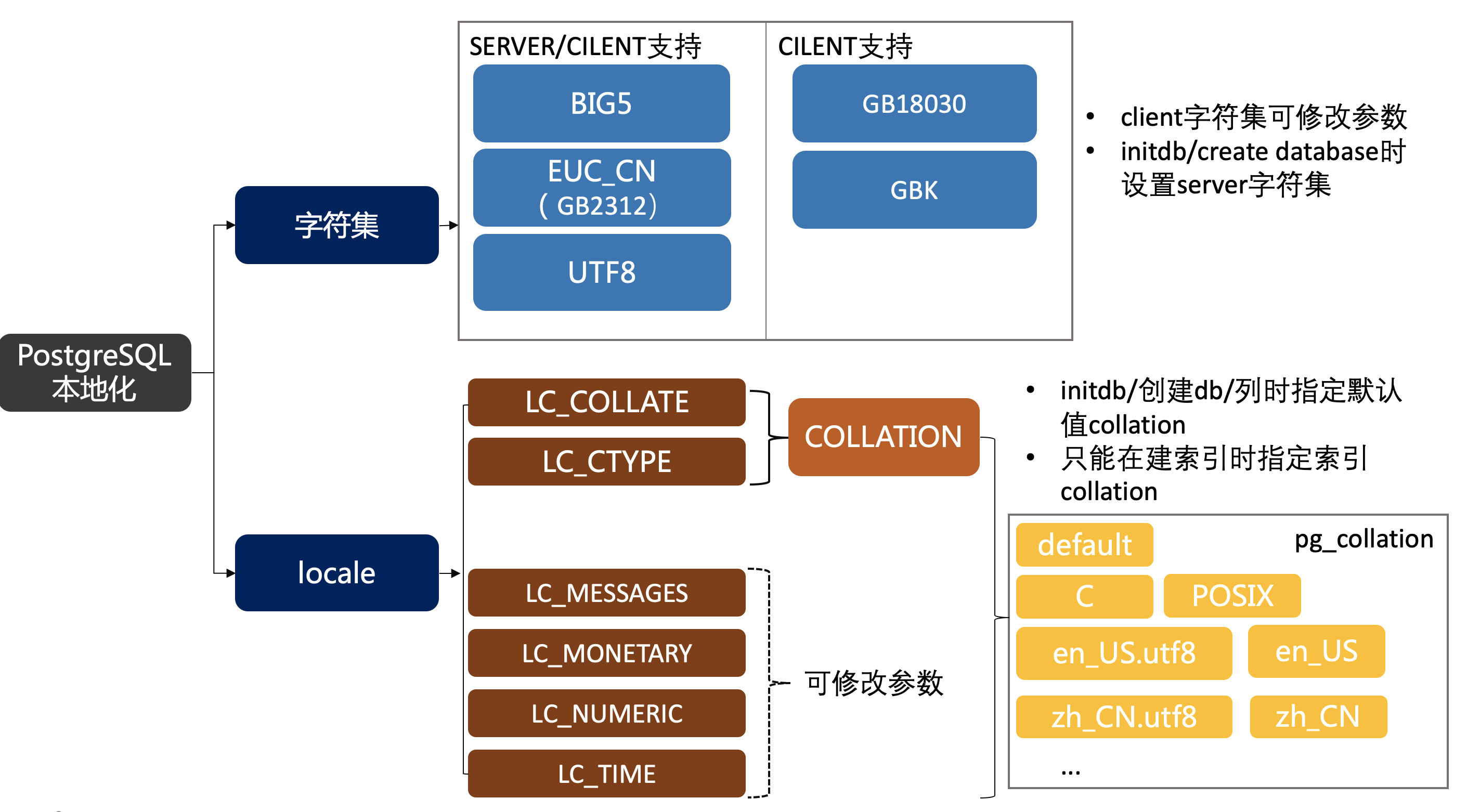
排序结果问题
因为utf8是最常见的字符集,我们测试utf相关的collation排序
create database db_UTF8 ENCODING 'UTF8' template 'template0'; --建一个UTF8的库,collation无所谓
use db_UTF8;
create table tzlz(name varchar(10));
insert into tzlz values('a'),('aa'),('A'),('AA'),('啊'),('阿'),('〇');
不同collation的order by结果:
select name from tzlz where name in ('a','aa','A','AA','啊','阿','〇') order by name;
select name from tzlz where name in ('a','aa','A','AA','啊','阿','〇') order by name collate "C";
select name from tzlz where name in ('a','aa','A','AA','啊','阿','〇') order by name collate "en_US";
select name from tzlz where name in ('a','aa','A','AA','啊','阿','〇') order by name collate "en_US.utf8";
select name from tzlz where name in ('a','aa','A','AA','啊','阿','〇') order by name collate "zh_CN";
select name from tzlz where name in ('a','aa','A','AA','啊','阿','〇') order by name collate "zh_CN.utf8";
| 顺序 | default | C | en_US | en_US.utf8 | zh_CN | zh_CN.utf8 |
|---|---|---|---|---|---|---|
| 1 | 〇 | A | 〇 | 〇 | a | a |
| 2 | a | AA | a | a | A | A |
| 3 | A | a | A | A | aa | aa |
| 4 | aa | aa | aa | aa | AA | AA |
| 5 | AA | 〇 | AA | AA | 阿 | 阿 |
| 6 | 啊 | 啊 | 啊 | 啊 | 啊 | 啊 |
| 7 | 阿 | 阿 | 阿 | 阿 | 〇 | 〇 |
这里的default是en_US.utf8(字段collation(default)->database collation(en_US.utf8))
🌟 C、en_US.uft8、zh_CN.uft8排序结果都不同
collate和索引扫描测试:
insert into tzlz values(generate_series(1,10000));
create index idxzlz_default on tzlz(name);
create index idxzlz_C on tzlz(name collate "C");
create index idxzlz_enUS_utf8 on tzlz(name collate "en_US.utf8");
使用collate在索引上的优化:
--不加任何collate关键字,简单的索引扫描,不会额外排序
db_utf8_c=> explain select name from tzlz where name in ('a','aa','A','AA','啊','阿','〇') order by name;QUERY PLAN
---------------------------------------------------------------------------------Index Only Scan using idxzlz_default on tzlz (cost=0.29..30.13 rows=8 width=4)Index Cond: (name = ANY ('{a,aa,A,AA,啊,阿,〇}'::text[]))--谓词加collate转换,可以走到正确的索引
db_utf8=> explain select name from tzlz where name collate "C" in ('a','aa','A','AA','啊','阿','〇');QUERY PLAN
---------------------------------------------------------------------------Index Only Scan using idxzlz_c on tzlz (cost=0.29..30.12 rows=7 width=4)Index Cond: (name = ANY ('{a,aa,A,AA,啊,阿,〇}'::text[]))db_utf8=> explain select name from tzlz where name collate "en_US.utf8" in ('a','aa','A','AA','啊','阿','〇');QUERY PLAN
-----------------------------------------------------------------------------------Index Only Scan using idxzlz_enus_utf8 on tzlz (cost=0.29..30.12 rows=7 width=4)Index Cond: (name = ANY ('{a,aa,A,AA,啊,阿,〇}'::text[]))--但是collation的名字必须一致
db_utf8=> explain select name from tzlz where name collate "en_US" in ('a','aa','A','AA','啊','阿','〇');QUERY PLAN
-----------------------------------------------------------------Seq Scan on tzlz (cost=0.00..232.63 rows=7 width=4)Filter: ((name)::text = ANY ('{a,aa,A,AA,啊,阿,〇}'::text[]))--同时order by也需要加collate转换表达式
--此时使用了正确的索引,但是order by的时候判断为不同的collation(哪怕他们是一样的)
db_utf8=> explain select name from tzlz where name collate "en_US.utf8" in ('a','aa','A','AA','啊','阿','〇') order by name;QUERY PLAN
-----------------------------------------------------------------------------------------Sort (cost=30.22..30.23 rows=7 width=4)Sort Key: name-> Index Only Scan using idxzlz_enus_utf8 on tzlz (cost=0.29..30.12 rows=7 width=4)Index Cond: (name = ANY ('{a,aa,A,AA,啊,阿,〇}'::text[]))--where和order by都加上collate转换,可以小选择正确的索引,且不会在发生排序
db_utf8=> explain select name from tzlz where name collate "en_US.utf8" in ('a','aa','A','AA','啊','阿','〇') order by name collate "en_US.utf8";QUERY PLAN
------------------------------------------------------------------------------------Index Only Scan using idxzlz_enus_utf8 on tzlz (cost=0.29..30.12 rows=7 width=42)Index Cond: (name = ANY ('{a,aa,A,AA,啊,阿,〇}'::text[]))
索引在指定collation后,sql需要显示使用collate关键字转换表达式,即便default与当前collation一致,pg也不会使用到索引。
like不走索引
The drawback of using locales other than
CorPOSIXin PostgreSQL is its performance impact. It slows character handling and prevents ordinary indexes from being used byLIKE
PostgreSQL原话:使用非C or POSIX会阻止使用普通索引!
db_utf8=> explain select name from tzlz where name like 'a%';QUERY PLAN
--------------------------------------------------------------------------Index Only Scan using idxzlz_c on tzlz (cost=0.29..4.31 rows=1 width=4)Index Cond: ((name >= 'a'::text) AND (name < 'b'::text))Filter: ((name)::text ~~ 'a%'::text)
(3 rows)db_utf8=> explain select name from tzlz where name collate "en_US.utf8" like 'a%';QUERY PLAN
--------------------------------------------------------------------------Index Only Scan using idxzlz_c on tzlz (cost=0.29..4.31 rows=1 width=4)Index Cond: ((name >= 'a'::text) AND (name < 'b'::text))Filter: ((name)::text ~~ 'a%'::text)
PostgreSQL在索引扫描时把like转化为了>=和<,<还加了一个比输入的值大一号的值,这里就有问题了,collation跟排序强相关,ASCII码中a+1是b,但是汉字又如何?
db_utf8=> explain select name from tzlz where name collate "en_US.utf8" like '阿%';QUERY PLAN
--------------------------------------------------------------------------Index Only Scan using idxzlz_c on tzlz (cost=0.29..6.49 rows=1 width=4)Index Cond: ((name >= '阿'::text) AND (name < '陿'::text))Filter: ((name)::text ~~ '阿%'::text)
果然出现了另一个汉字!
如果是全表扫描,不会出现>= <的情况
db_utf8=> drop index idxzlz_c;
DROP INDEX
db_utf8=> explain select name from tzlz where name collate "en_US.utf8" like '阿%';QUERY PLAN
------------------------------------------------------Seq Scan on tzlz (cost=0.00..170.09 rows=1 width=4)Filter: ((name)::text ~~ '阿%'::text)
可以创建一个与collation规则无关的索引(pg官方声称无关)
CREATE INDEX idx_pattern ON tzlz (name varchar_pattern_ops);
来看看他的执行计划
db_utf8=> explain select name from tzlz where name like '阿%';QUERY PLAN
-----------------------------------------------------------------------------Index Only Scan using idx_pattern on tzlz (cost=0.29..6.49 rows=1 width=4)Index Cond: ((name ~>=~ '阿'::text) AND (name ~<~ '陿'::text))Filter: ((name)::text ~~ '阿%'::text)
他还是把大1号的字符串自己生成了,这跟collation一定是有关系的···,看上去就是C
所以可以得出结论:
pg在like使用普通索引时,需要把其转换为>= <,此时必须出现一个比当前字符串大1的值。而collation又与大小强相关,此时只能使用同一collation索引才能保证数据正确。pg选择了非本地化的collation C。
临时解决这个问题最快的办法是新建一个collation C或pattern索引:
create index idxzlz_C on tzlz(name collate "C");
CREATE INDEX idx_pattern ON tzlz (name varchar_pattern_ops);
其他调整各级别的默认collation参考上面的章节。
开发习惯在建索引时不会指定collation,如果不是C或pattern,都走不了like,在加上要选择国际字符集utf8,这样在数据库运维时选择的本地化方式就非常少了。字符集为utf8,collation为C
参考
https://dbafix.com/what-is-the-impact-of-lc_ctype-on-a-postgresql-database/#:~:text=Having%20LC_CTYPE%20set%20to%20%E2%80%98C%E2%80%99%20implies%20that%20C,Postgres%20on%20top%20of%20these%20libc%20functions%2C%20they%E2%80%99re
https://www.postgresql.org/docs/current/charset.html
https://www.bookstack.cn/read/rds-best-pratice/bfc0037fe00d87dc.md
https://help.aliyun.com/zh/rds/apsaradb-rds-for-postgresql/configure-the-collation-of-a-database-on-an-apsaradb-rds-for-postgresql-instance
https://baike.baidu.com/item/%E7%BB%9F%E4%B8%80%E7%A0%81/2985798?fromModule=lemma_inlink&fromtitle=Unicode&fromid=750500
https://baike.baidu.com/item/%E4%B8%AD%E6%97%A5%E9%9F%A9%E8%B6%8A%E7%BB%9F%E4%B8%80%E8%A1%A8%E6%84%8F%E6%96%87%E5%AD%97/1301611?fromModule=lemma_inlink
https://blog.csdn.net/songyundong1993/article/details/128739919
